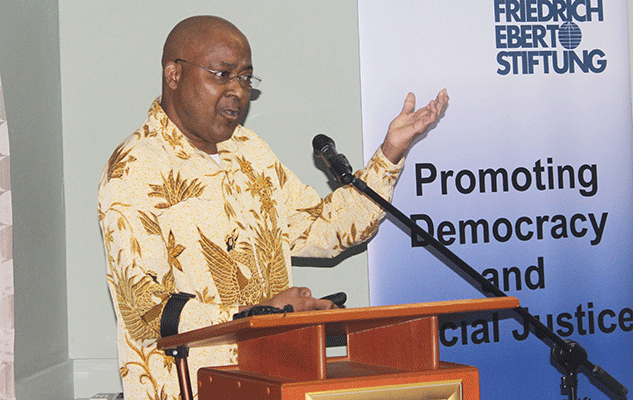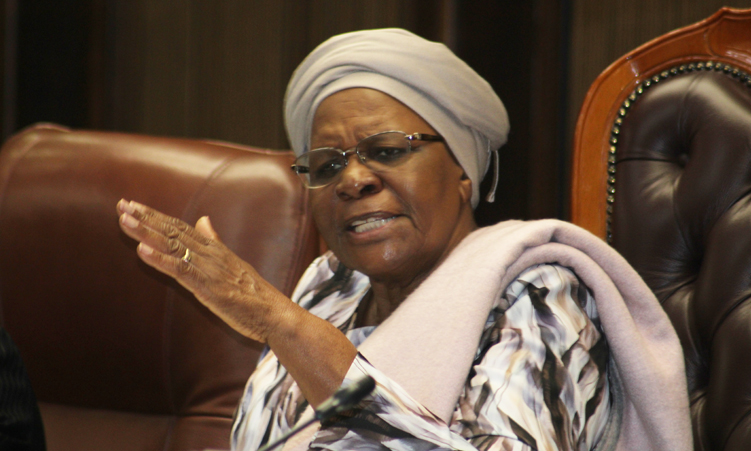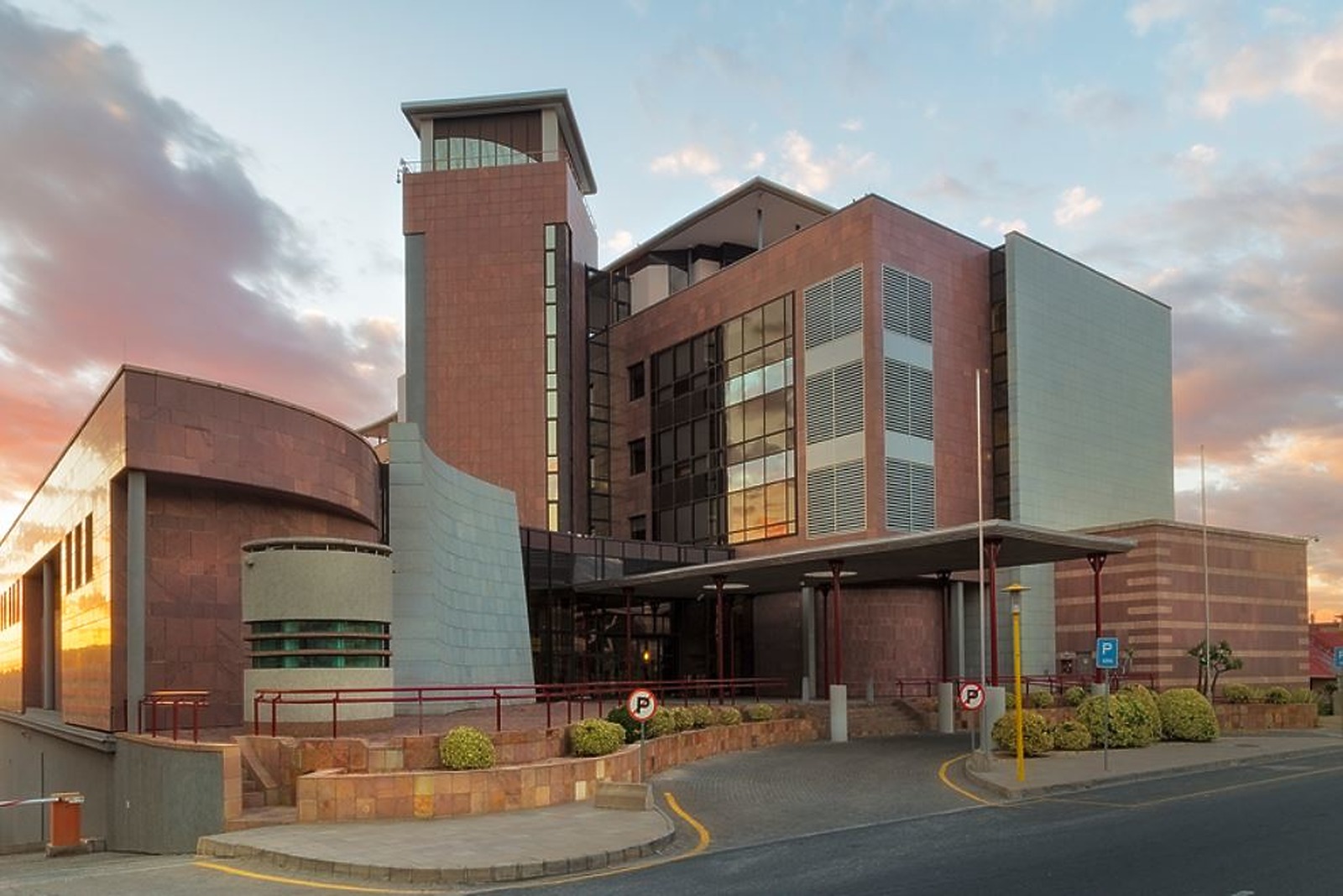The Namibian government has budgeted N$528 million for membership fees to international organisations for next year, up from N$259 million it will pay this year.
This includes a N$36,7 million membership fee to the African Union (AU) and N$62,1 million to the Southern African Development Community (SADC).
Less than N$2 million in fees is paid to local institutions.
The government will pay N$528 million the next financial year, which is double the current amount.
The three biggest spenders on membership fees are: the ministries of international relations and cooperation paying N$129 million, finance N$65,6 million and health N$14,5 million.

The Ministry of International Relations and Cooperation told The Namibian last week that the membership fees to regional and international organisations cover operational and programme budgets of the organisations, carried out in member states.
“The operational budget covers the upkeep, running and maintenance of the organisation, including the payment of emoluments; while the programme budget covers activities towards the objectives of the organisation […] which may include socio-economic development in various areas such as infrastructure, energy, climate change and disaster risk management,” the ministry explained.
Despite spending over N$30 million on membership fees, Namibia has not filled its employment quota at AU.
“While at the SADC level our quota is almost maximised, at AU, we still have the opportunity to fill 23 positions within the continental structure, out of the 25 positions available to Namibia,” the ministry said last week.
The ministry said as at 28 February, 38 Namibians were employed in international organisations.
Around 19 are working for the United Nations, five at AU, while 14 are at SADC.
Responding to the ‘toothless’ criticism, the international relations ministry said the comments are misleading and based on a lack of understanding of what these organisations do.
“You have to read the AU Constitutive Act and measure it against the steps taken. AU, aware of the setback in development resulting from the disruption of the constitutional order, has decided to suspend any country whose government has come to power through unconstitutional means,” the ministry stated.
Furthermore, a large chunk of the finance ministry’s N$65,6 million fees goes to the Macroeconomic and Financial Management Institute of Eastern and Southern Africa (MEFMI), where it pays N$5,8 million.
MEFMI deals with capacity development within 14 member countries, namely: Angola, Botswana, Burundi, Eswatini, Kenya, Lesotho, Malawi, Mozambique, Namibia, Rwanda, Tanzania, Uganda, Zambia and Zimbabwe.
The finance ministry’s spokesperson Wilson Shikoto said: “MEFMI offers fellowship and training programmes in macroeconomic and financial management, among others, as capacity building interventions to employees of the ministries of finance, economic planning and central banks of member countries.”
He added that officials in the Ministry of Finance and Public Enterprises, National Planning Commission, Bank of Namibia and Namibia Statistics Agency, have been trained through the MEFMI development programmes.
The health ministry also defended its membership fees, saying it keeps them up-to-date with international standards.
“It gives guidance and practice frameworks, including quality assurance that assist the division progress towards compliance to the standards and code of conduct of its members,” said health ministry spokesperson Walters Kamaya
The health ministry spent N$10 million on the Global Fund, N$1,7 million on the World Health Organisation and N$1,5 million on the SADC HIV AIDS Trust. Other organisations include South African Institute of Internal Auditors (N$20 000), World Wide Information Service (N$350 000) and International Atomic Energy Agency (N$900 000).

ANALYSTS
Political analyst and lecturer Erika Thomas said the AU is a toothless institution that is not doing anything.
“We don’t see any value that the union has contributed to Namibia. Let’s look at Africa, what is the AU doing?” she asked.
Thomas added that if any African country is under threat from the western countries, AU cannot even lift a finger to defend it.
“Look what happened to Libyan leader Muammar Gaddafi. They were there and what did they do? Nothing. Now, they require a lot of money,” she said.
The analyst said SADC has yet to assist its member countries.
“Look at SADC, there is a lot of conflict, threats from the west, inequality and poverty, what are they doing? What are they doing with this membership money?” she asked.
She suggested a fund for risk management when disasters like floods and droughts strike.

Thomas also said these funds could assist the unemployed youth.
On the other hand, economist Omu Kakujaha-Matundu believes the money spent on AU and SADC is worth it because Namibia needs these regional and continental memberships.
“There are so many tangible benefits such as trade and also many intangible benefits such as peace and security, collective voice or bargaining, learning from each other and having some binding commitments to different treaties, and policy reforms,” he said.
Kakujaha-Matundu said it is difficult to tell whether the N$200 million membership fees is necessary.
“Government once pulled out of Comesa (Common Market for Eastern and Southern Africa) when it realised that it was not reaping benefits out of that membership.
“So again [government] can and should re-assess the benefits, both tangible and intangible. And where costs of membership exceed the benefits, it should withdraw its membership,” the analyst added.
Namibia is also a member of Comesa.
Stay informed with The Namibian – your source for credible journalism. Get in-depth reporting and opinions for
only N$85 a month. Invest in journalism, invest in democracy –
Subscribe Now!










